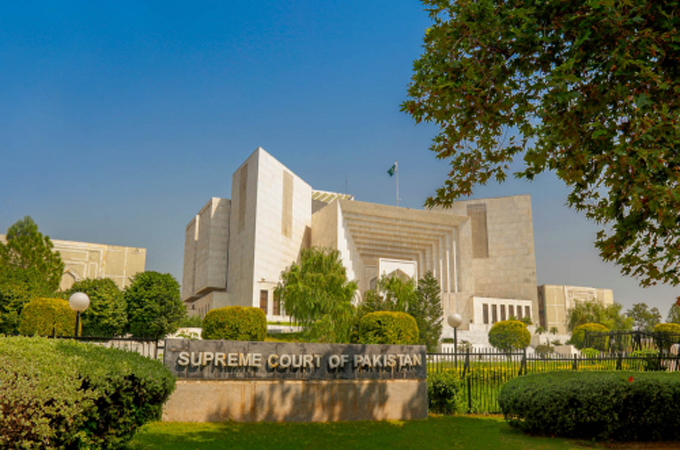Senior Judiciary can greatly help Strengthen Pakistan’s Economy
A country can be called a sovereign country if it can make independent policy decisions without internal vulnerabilities and external pressures. Only that country can make such decisions, which has a strong economy and defence capability. This is necessary to withstand foreign pressures, face foreign threats to the security and have the capacity to return foreign loans easily. Because, if a country is under foreign debt, and requires more loans, the foreign governments and financial institutions like the IMF and the World Bank can greatly influence its foreign and domestic policies.
A strong economy is also important to maintain a modern and well equipped armed forces. A robust economy is also required to keep internal stability by feeding a large population like Pakistan in the Corona virus-like and other emergencies. Otherwise, extreme poverty conditions can lead to looting and lawlessness, which can threaten a country’s internal security. A similar situation can arise if a country defaults on the return of loans.
For having a resilient and strong economy in a country, the governments must ensure that its economic activity continues uninterrupted, its industry and business flourishes and its state institutions, like the steel mill, railways, energy-producing plants, and national airline remain profitable and create employment opportunities. It is also important that exports of a country flourish to earn foreign exchange. It is also necessary that a country remains internally and externally stable.


Through corruption, Pakistan has been kept under poverty, heavy debt and vulnerable to the economic failure/meltdown
In Pakistan, what to talk of having the above mentioned ideal economic situation, except the decade of 1960s, when the country was much ahead of the current Asian Tigers. Now its economy has been mostly mismanaged and its wealth misused and looted by some bad elements out of the elected representatives, government members and bureaucrats through corrupt practices, and a large scale tax evasion is evident from the ongoing corruption cases referred to the courts by the NAB and the government.
Thus, through corruption, Pakistan has been kept under poverty, heavy debt and vulnerable to the economic failure/meltdown, which created threats to its security, despite having strong armed forces and being a nuclear-capable state. For example, according to the GFP, whereas Pakistan’s foreign exchange reserves in 2020 are $18 Billion with $110 billion external debt liability, Bangladesh has $33 billion foreign debt, Singapore has $279 billion and India has $409 billion. Therefore, to live in the comity of nations with honour and maintain its sovereignty, Pakistan should aim at having a robust economy with minimum debts and sufficient foreign exchange reserves.
Given the above, to strengthen its economy, Pakistan’s senior judiciary can play a major role in boosting its national wealth by ending or minimising corruption and tax evasion.
Since the Supreme Court of Pakistan has the power to take up sou moto notices on important issues related to Pakistan, it can assist the country in ending corruption by taking sou moto notices against the above-mentioned government functionaries, bureaucrats, members of the judiciary, retired army officers, industrialists, businessmen and other rich people, especially those who have kept their property and wealth abroad.
This is a very important function, which the judiciary may consider taking up at its own, because all incumbent governments in Pakistan may not be willing to refer the corruption and tax evasion cases to the courts to save their elected members/ministers and likeable officials. Also, cases filed by some governments, like the present one, and the NAB may not be proved in the courts because of non-availability of evidence as witnesses do not appear in the courts to give statements against the influential and powerful people.
To show the judiciary’s resolve to end the corruption, it can decide the ongoing cases of corruption and tax evasion in the courts, of the politicians and other government officials and above-mentioned institutions on the basis that the alleged persons should prove that their assets, that of their dependent children and unemployed wives were not beyond their means of income.
In this context, the onus of proving that their assets were not beyond their means of income should be on the accused persons rather than the prosecution because of the obvious limitations, as discussed above. And the persons proven guilty should be given heavy punishments to act as a deterrent for the corrupt.
The writer is a former consultant and Research Fellow of Islamabad Policy Research Institute (IPRI), and Senior Research Fellow of Strategic Vision Institute, Islamabad
Leave a Comment